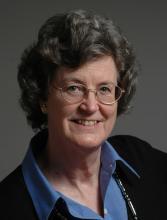 Thursday, January 30, 2014
Thursday, January 30, 2014In 2005 the German government launched the Excellence Initiative through the German Research Foundation (DFG) and the German Science Council. The call for proposals required applicants to fundamentally rethink how doctoral training is organized so that Germany could reclaim its preeminence in research and research training. Entire universities as well as university divisions applied in all fields. Eighty-five institutions received awards, nine were entire universities. The difference in concept between both the old German doctoral system and Excellence awardees as well as between Excellence awardees and much of the US doctoral training system is enormous. Every aspect of doctoral training has been scrutinized to lower the time to degree by making sure students understand expectations, participate in many kinds of professional training and academic support, are supervised by a group of faculty (not just a Doktorvater/mutter) and acquire the skills necessary for the student’s chosen profession after the doctorate. Doctoral degree time is under four years and employment of Excellence graduates is very high. Since the application is created by graduate faculty and they themselves have designed the program, they are committed to it. Doctoral reform in the US on the other hand depends largely on small unit buy-in from a group of faculty, a department or a division. Disciplinary associations such as the American Chemical Society and organizations external to individual universities such as the American Association of Colleges and Universities have created a range of doctoral reform programs, but the fundamental structure of doctoral training has not altered all that much. This talk explores the German reforms in some detail and examines the potential of these to be applied to US programs.
BIOGRAPHY
Anne MacLachlan has a Ph.D. in German social and economic history and is an expert in graduate education in both the US and Germany. She has conducted several studies of doctoral students, their training and careers. Her concern is to make doctoral training more inclusive for US underrepresented groups and women and more successful. Her most recent article is “Lost in Translation: The Exchange of Models of Doctoral Education between Germany and the United States.” Currently she is developing a project on the socialization of first year doctoral students and how that could be improved comparing German and US approaches. Her work has been funded by the German Academic Exchange Service, The Max-Planck Institute, the Spencer Foundation, and several others.
Sponcors:
Center for Studies in Higher Education and Graduate Division(link is external), University of California, Berkeley
